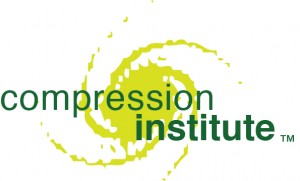 The mission of the institute is to create and support action learning groups to transform work organizations and communities using Compression Thinking.
The mission of the institute is to create and support action learning groups to transform work organizations and communities using Compression Thinking.
To appreciate the difficulty of this mission, reflect on it, which will begin your Compression Thinking. We’ve described action learning groups by a variety of names, like consortia. Let’s call them Compression Thinking Groups. Within these groups we want to develop each member work organization to in turn become a Vigorous Learning Organization. “Vigorous” suggests learning to do differently, changing the purpose of their work, improving the effectiveness of outcomes, and drastically reducing the use of virgin materials to accomplish their outcomes.
That’s transformative – so transformative that leaders starting Compression Thinking probably cannot grasp how it might be possible without learning to see their situation and their problems in entirely new ways.
To form Compression Thinking Groups we’re seeking pioneers who will help each other navigate unmarked trails and blaze new ones. Most will need to pioneer as a cluster, because profoundly changing business models, difficult at best, is nearly impossible for any lone organization in a hostile business environment. We expect different kinds of groups with a variety of members, with the common thread only that they have missions related to Compression. Here are some examples:
1. A group of 5-10 manufacturing and technology companies learning how to transform their products and processes based on life cycles. They would take used physical products back, and “rework” them for reuse. To do that, they have to become more effective with their customers while using much less energy and virgin material. Soon they would draw in key suppliers. We think that a member of such a group might also be a financial institution learning Compression Thinking, thereby learning the risks of financing such huge transformations and become willing to take some risks.
2. A school corporation trying to dramatically improve K-12 education without using as many buses, buildings, and other resource eaters to do it. This group would include many community organizations, because social problems of a community make their way into the schools. “Fixing” the schools entails “fixing” many other elements of a community environment. The group could rethink the intended outcome of youth experiences from, say, ages 4 to 18; then devise how to obtain these outcomes in very different ways. In communities this implies resolving “wicked problems” involving human clashes, and adopting a holistic view of child development – not just an intellectual one.
3. A coalition of community services like police departments, fire departments, utilities, street departments, and others that will devise pioneering approaches to improve public safety, security, and quality of life using much less energy and other resources. Just as in the case of the schools, this will require resolving a lot of conflicting demands and expectations – getting beyond the normal “political processes.”
The last two types of groups suggest an important aspect of dealing with Compression. To drastically reduce consumption, we have to go to points of use, not just to points of production – mining and manufacturing companies. Major transformation is in effectiveness of service and quality of life, not just in re-engineering product and process designs.
To this end, the Institute, as of October 17, has eight board members: Doc Hall, Marvin Klein, Wayne Lindholm, Jason McVay, Rusty Patterson, Dave Veech, Jack Ward, and Andrew Warrington. We’re stirring more activity with public presentations, and in early December we’ll have a developmental meeting for people who will guide Compression Thinking Groups. Hopefully, we’re moving from “interesting talk” to the venture stage – how real people and organizations can actually make such huge transformations.
